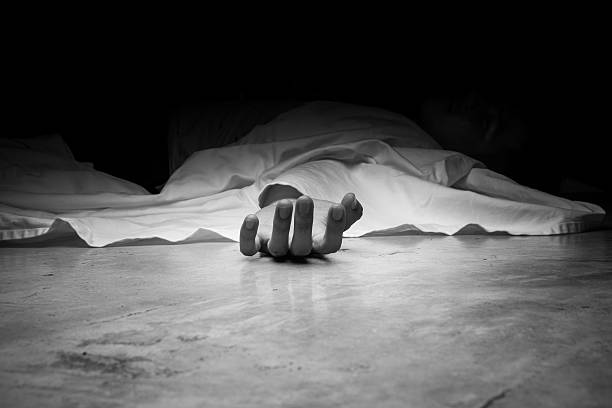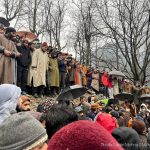Srinagar, Jan 06: Despite multiple advisories from authorities, asphyxiation incidents have claimed seven lives across Kashmir in the past week. Experts are now calling for community-level awareness campaigns to prevent further tragedies caused by carbon monoxide poisoning during the harsh winter.
Pertinently, the recent victims include five members of a family in Srinagar and two individuals in Kulgam. The Kulgam case involved a mother and son, with the mother still undergoing treatment and battling for her life in the ICU at SKIMS.
Many experts are calling for increased awareness at the local village level, with Auqaf committees and religious preachers using Friday sermons to educate people about the safe use of heating appliances, particularly charcoal bukharis and gas heaters. Others suggest that carbon monoxide sensors should be installed in rooms, where such devices are used, to prevent potential dangers.
Professor (Dr.) Rafi Ahmed Jan, Professor of Chest Medicine at GMC Anantnag and former Head of Pulmonary and Internal Medicine at SKIMS, told Rising Kashmir that the ongoing harsh winter in Kashmir, known as Chillai Kalan, poses significant challenges, particularly for economically disadvantaged groups.
He said that during this period, when temperatures can plummet to as low as minus eight degrees Celsius (-8°C), these groups are more vulnerable to tragic incidents due to inadequate access to advanced heating devices.
Dr. Rafi said that many people rely on heating sources like firewood, charcoal, or coal, which are often kept burning throughout the night. The lack of proper ventilation leads to the accumulation of carbon monoxide, a poisonous gas that can result in respiratory failure and death.
“Carbon monoxide enters the bloodstream, hampers oxygen transfer, and becomes highly toxic, ultimately causing respiratory failure,” he said. He also warned against prolonged use of gas heating appliances in poorly ventilated spaces, as they too emit carbon monoxide, posing similar risks.
Dr. Rafi advised that individuals who cannot afford advanced heating devices should opt for traditional Kangris, which are safer when used correctly. “Heating sources, regardless of type, should not be kept running for extended periods in enclosed spaces. Proper ventilation is key to preventing such fatalities,” he added.
A revenue officer said that his office will issue an awareness notice to mosque committees on Tuesday, aiming to reach every individual in the village with critical information regarding asphyxiation and its prevention.
He said that door-to-door campaigns are essential to saves lives that are immensely valuable.
He also suggested that the Rural Development Department (RDD) could organize Gram Sabhas to raise awareness at the village level. “MLAs can mobilize communities and organize awareness campaigns to prevent fatalities caused by asphyxiation during Kashmir’s harsh winters,” he added.
Bilal Ahmad, Tehsildar Kulgam, said that Lumberdars can play a pivotal role in grassroots-level awareness campaigns, which can eventually lead to widespread understanding about the proper use of heating devices during winters.
He added that his office has issued an awareness notice to mosque committees, which will be shared with the public during Friday sermons to educate people about preventive measures and ways to avoid loss of lives due to suffocation.
The notice reads that the practice of sealing invisible gaps in windows with polythene, excessive and continuous use of gas and coal heaters, as well as room heaters, have become major causes of human casualties.










